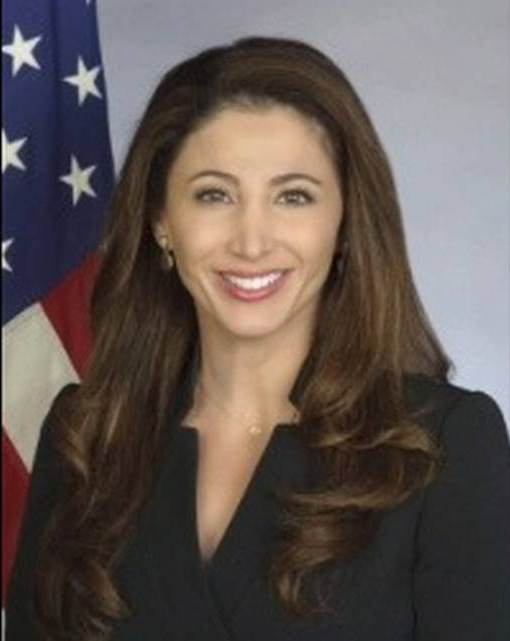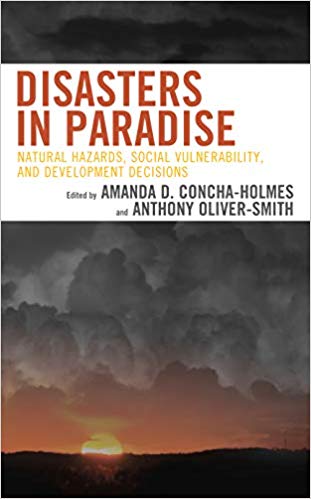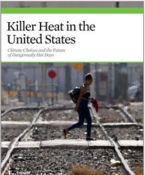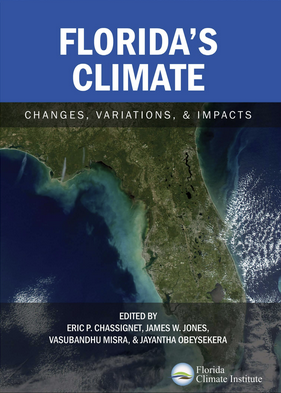 |
|
Governor Ron DeSantis Announces Dr. Julia Nesheiwat
as Florida's First Chief Resilience Officer
Governor Ron DeSantis announced the appointment of Dr. Julia Nesheiwat as Florida's first Chief Resilience Officer (CRO). The CRO is tasked with preparing Florida for the environmental, physical and economic impacts of sea level rise. The CRO reports to the Executive Office of the Governor and will work in partnership with the Florida Department of Environmental Protection, the Florida Department of Transportation, the Florida Division of Emergency Management, the Florida Department of Agriculture and Consumer Services, the Florida Fish and Wildlife Conservation Commission and the Florida Department of Economic Opportunity, in addition to local communities and stakeholders. Read more.
|
|
Proposed Florida Climate Assessment
The proposed Florida Climate Assessment will:
- Produce a strategic tool with standards, data, analyses, andthresholds for use in planning, decision-making, setting research agendas, and use in public policy and legislation
- Ensure resiliency decisions are informed by the best available science through an iterative, stakeholder driven process that is easily updated and user-focused
- Use the best science in a manner that is responsive, supportive, and critical focusing on systems and not separate sectors
- Improve relationships between knowledge producers and users and yield better decisions and outcomes to build capacity and overcome barriers
We want to know your thoughts on the proposed Florida Climate Assessment and its potential value to your work and to the state of Florida.
Email us and please include your name, contact information, affiliation, and position.
|
Resilience Planning Grants 2020-2021
The Florida Department of Environmental Protection, through the Florida Resilient Coastlines Program, will provide financial assistance aimed at preparing coastal Florida communities for current and future effects of rising sea levels, including coastal flooding, erosion, and ecosystem changes. The purpose of the FRCP Resilience Planning Grants (RPG) is to promote community resilience planning, develop vulnerability assessments, adaptation plans, and comprehensive plan goals, objectives and policies and regional coordinate. These state-funded grants run from July 1, 2020, to April 30, 2021. The total amount awarded will depend on funding made available by the Governor and Legislature. Individual awards will be up to $75,000. Application period is open through October 7, 2019. Click here for more information
|
Stetson University names Interim Executive Director of Institute for Water and Environmental Resilience
Community reception introduces Jason Evans and honors retiring Executive Director Clay Henderson
Deland, FL -- Stetson University has named Jason Evans, Ph.D., as the interim executive director of the Institute for Water and Environmental Resilience (IWER). His role begins on Aug. 15. Evans will fill the position while Stetson searches for a permanent replacement for Clay Henderson, J.D., who is retiring. Evans is an associate professor of environmental science and studies at Stetson as well as faculty director of IWER. Clay Henderson, a Stetson graduate, attorney and leading scholar of environmental policy, has served as IWER's executive director for four years and taught environmental activism, law, planning and policy and water policy courses. Henderson's Stetson accomplishments include developing and organizing IWER and its staff, including the advisory and faculty steering committees, affiliate faculty and endowment; creating and administering the Sustainable Farming Fund to incentivize sustainable agriculture in the Suwannee River basin; and planning and conducting fundraising associated with the Sandra Stetson Aquatic Center. Read more.
|
NEW BOOK:
Disasters in Paradise: Natural Hazards, Social Vulnerability, and Development Decisions
Long considered ground zero for global climate change in the United States, Florida presents the perfect case study for disaster risk and prevention. Building on the idea that disasters are produced by historical and contemporary social processes as well as natural phenomena, Amanda D. Concha-Holmes and Anthony Oliver-Smith present a collection of ethnographic case studies that examine the social and environmental effects of Florida's public and private sector development policies. Contributors to
Disasters in Paradise: Natural Hazards, Social Vulnerability, and Developmental Decisions
explore how these practices have increased the vulnerability of Floridians to hurricanes, tornadoes, floods, droughts, frosts, and forest fires.
|
Report: Killer Heat in the United States
A study by the Union of Concerned Scientists shows that the number of days with a dangerously high heat index could increase dramatically in Florida and the rest of the United States due to climate change. The analysis, titled Killer Heat in the United States, finds that if no action is taken to reduce heat-trapping emissions, Florida is projected to experience some of the highest frequencies of extreme heat in the nation-in an average year and averaged across the state, 105 days with a heat index over 100°F (up from just 25 days historically) and 63 days with a heat index over 105°F.
|
|
Report proposes extension of Community Reinvestment Act (CRA) credits to banks for climate adaptation investments
A community development research brief published by the Federal Reserve Bank of San Francisco introduces the field of climate adaptation finance and explains its connection to the Community Reinvestment Act (CRA) within the context of the disaster provisions guiding pre- and post-disaster investments. In a demonstration of need, the report provides evidence of the spatial concentration of disaster declarations in areas with CRA-eligible populations. It highlights existing innovative and hypothetical investments within a broader context for stimulating greater pre-disaster planning and investment. Community development practitioners, investors and policymakers will find this report useful for sparking new ideas about how to develop partnerships and funding streams for CRA-eligible activities-in both eligible communities and areas within a federal disaster declaration-that will reduce the vulnerability and increase the adaptive capacity of communities to the impacts of climate change.
Read more.
Keenan, Jesse M, and Elizabeth Mattiuzzi. 2019. "Climate Adaptation Investment and the Community Reinvestment Act,"
Federal Reserve Bank of San Francisco Community Development Research Brief 2019-5. Available at
https://doi.org/10.24148/cdrb2019-05
|
|
Miami-Dade Back Bay Coastal Storm Risk Management Feasibility Study
The U.S. Army Corps of Engineers plans to prepare a feasibility study with an integrated Environmental Impact Statement (EIS) to evaluate environmental impacts from reasonable project alternatives to protect low-lying and flood-prone areas of Miami-Dade County, Florida, from hurricanes and other coastal storms with their associated wind, storm surge, and coastal flooding. USACE is the lead federal agency and Miami-Dade County will be the non-federal sponsor for the study. The study/EIS will address the primary problem of the increasing storm damage and flooding occurring and expected to increase in the area by studying all reasonable alternatives and determine the federal interest in cost-sharing for those alternatives. The public is invited to submit NEPA scoping comments by mail or via email no later than August 23, 2019.
|
America Adapts: The Climate Change Podcast
Keeping History Above Water - St. Augustine,
Cultural Heritage and Sea Level Rise
In episode 90 of
America Adapts, host Doug Parsons traveled to St. Augustine for the
Keeping History Above Water conference. He interviewed experts on the threat of sea level rise to cultural resources and discovered how historic preservation will be a key catalyst for adapting the built environment to climate change.
Listen to the podcast here.
|
Coastal Planning and Sea Level Rise Newsletter
Check out the
Coastal Planning and Sea Level Rise Newsletter put together by Thomas Ruppert of Florida Sea Grant. It contains valuable science, policy, planning, risk and insurance, and economics resources for anyone working on coastal resiliency and planning in Florida and beyond.
|
|
Awards and Honors
Chris Martinez, Associate Professor of Agricultural and Biological Engineering University of Florida, has received a $1.6 million research grant from the from the NASA Earth Science Applications: Water Resources Program. The three-year project is entitled "Integrating NASA Earth Systems Data into Decision-Making Tools of Member Utilities of the Florida Water and Climate Alliance."
O.S. Mbuya, a Professor of Agricultural Sciences at Florida Agricultural and Mechanical University (FAMU), and Courtesy Professor of Agronomy at the University of Florida /IFAS will attend and present at the United Nations Framework Convention for Climate Change (UNFCCC) 68th United Nations Civil Society Conference to be held in Salty Lake City, Utah on 26 - 28 August, 2019. Mbuya will represent FAMU and the Florida Climate Institute. Dr. Mbuya is the Director of the Center for Water Resources at FAMU and FCI Branch Director/FAMU.
|
|
Upcoming Events & Webinars
|
|
Job, Internship, and Fellowship Opportunities
|
|
Publications
Ardusso, L. R. F., Neffen, H. E., Fernandez-caldas, E., Saranz, R. J., Parisi, C. A. S., Tolcachier, A., et al. (2019).
Environmental intervention in respiratory disease.
Medicina-Buenos Aires, 79(2), 123-136.
Dai, H., Ye, M., Hu, B. X., Niedoroda, A. W., Zhang, X., Chen, X., et al. (2019).
Hierarchical sensitivity analysis for simulating barrier island geomorphologic responses to future storms and sea-level rise.
Theor Appl Climatol, 136(3-4), 1495-1511.
Computers, Environment and Urban Systems, 76, 69-79.
Clim Dyn, 52(11), 6877-6892.
Lapointe, B. E., Brewton, R. A., Herren, L. W., Porter, J. W., & Hu, C. (2019).
Nitrogen enrichment, altered stoichiometry, and coral reef decline at Looe Key, Florida Keys, USA: a 3-decade study.
Mar Biol, 166(8).
Liu, C., Liang, X., Ponte, R. M., Vinogradova, N., & Wang, O. (2019.
Vertical redistribution of salt and layered changes in global ocean salinity.
Nat Commun, 10(1).
Marlon, J. R., van der Linden, S., Howe, P. D., Leiserowitz, A., Woo, S. H. L., & Broad, K. (2019).
Detecting local environmental change: the role of experience in shaping risk judgments about global warming.
Journal of Risk Research, 22(7), 936-950.
Ponte, R. M., Carson, M., Cirano, M., Domingues, C. M., Jevrejeva, S., Marcos, M., et al. (2019).
Towards Comprehensive Observing and Modeling Systems for Monitoring and Predicting Regional to Coastal Sea Level.
Front. Mar. Sci., 6.
Shultz, J. M., Shultz JM, Rechkemmer, A., Rechkemmer A, Rai, A., Rai A, et al. (2019).
Public Health and Mental Health Implications of Environmentally Induced Forced Migration.
Disaster Med Public Health Prep, 13(2), 116-122.
Stofer, K. A., Lundgren, L., Dunckel, B., James, V., Lange, M., & Krieger, J. (2019).
Public Engagement on Climate and Health in Museums and Participatory Dialogues may Foster Behavior Change.
Journal of STEM Outreach, 2.
Taylor, R. A., Ryan, S. J., Lippi, C. A., Hall, D. G., NaroueiKhandan, H. A., Rohr, J. R., et al. (2019).
Predicting the fundamental thermal niche of crop pests and diseases in a changing world: A case study on citrus greening.
J Appl Ecol, 56(8), 2057-2068.
|
Available Now! A Book from the FCI:
Florida's Climate: Changes, Variations, & Impacts
Florida's Climate: Changes, Variations, & Impacts provides a thorough review of the current state of research on Florida's climate, including physical climate benchmarks; climate prediction, projection, and attribution; and the impacts of climate and climate change on the people and natural resources in the state. The book is available for purchase in paperback and Kindle format at
Amazon.com.
Individual chapters may be accessed on the
FCI website.
|
|
About Us
The Florida Climate Institute (FCI) is a multi-disciplinary network of national and international research and public organizations, scientists, and individuals concerned with achieving a better understanding of climate variability and change.
Email: [email protected] Website: floridaclimateinstitute.org
|
|
|
|
|
 |


















